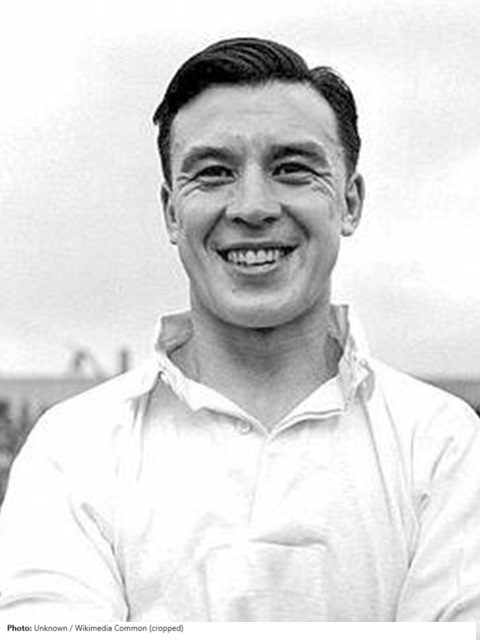
| Roles | Coach |
|---|---|
| Sex | Male |
| Full name | Frank•Soo |
| Used name | Frank•Soo |
| Born | 12 March 1914 in Buxton, England (GBR) |
| Died | 25 January 1991 (aged 76 years 10 months 13 days) in Cheadle, Stoke-on-Trent, England (GBR) |
| NOC |  Norway Norway |
| Nationality |  Great Britain Great Britain |
As the first man of partly non-European heritage to play football for the England national team, Frank Soo was a trailblazer in British football although his name rarely appears in record books as his appearances happened during World War Two when normal international football was suspended in Great Britain.
The son of a Chinese sailor and English mother, Frank was born in Buxton, Derbyshire, where his father had set up a laundry business, but raised in Liverpool. After playing for local junior teams in Merseyside, Soo was signed by Stoke City in 1933 and slowly established himself as a regular in the team over the next few seasons. At the time of the declaration of war there was clamouring in the press that he should be given a chance to play for England but the suspension of football in late 1939 seemed to put an end to his chances. He was called up to join the Royal Air Force in 1941 and helped to train air crew whilst playing football whenever he was able.
Soo finally got to appear in the white shirt of England against Wales in 1942 and went to play in eight more games, albeit ones that did not have official status in the eyes of the Football Association. He also captained a Combined Armed Forces team in exhibition matches. He left Stoke City in 1945 to join Leicester but was still regarded highly enough to be called up for what should have been his first official international in autumn 1946. Sadly he had to withdraw from the team through injury and by the time he was again fit his place was usurped by future England great Billy Wright.
With football returning to normal peacetime activity, Soo was in his thirties and turning his attention to coaching. He was player / assistant coach at semi-professional Chelmsford City and spent the summer coaching Helsingin Palloseura in Finland, but he was overlooked when the job of Chelmsford manager became vacant and he retired as a player at the end of the 1949-50 season. After a season with St. Albans City, Soo was recruited to take charge of Italian Serie A club Padova in April 1951 and helped the club avoid relegation to Serie B. When his wife died of an overdose of barbiturates part way through his second season with Padova he resigned and returned home to England.
He soon signed a contract to coach the Norwegian team at the 1952 Helsinki Olympics, which, although markedly unsuccessful, led to a long period of his life being spent in Scandinavia. Soo spent six years in Sweden, highlighted by Djurgården winning the national championship in 1955, before returning to England for a season at Scunthorpe United. Subsequently, he had periods coaching in Norway, Sweden and Denmark and had an agreement to manage the Israeli national team in 1963 until the deal fell through. Soo remained in Sweden until he returned to England in the 1980s, by which time he was beginning to suffer from dementia.
| Games | Sport (Discipline) / Event | NOC / Team | Pos | Medal | Nationality | As | |
|---|---|---|---|---|---|---|---|
| 1952 Summer Olympics | Football (Football) |  NOR NOR |
 GBR GBR |
Frank Soo | |||
| Football, Men (Olympic) | Norway | =9 |